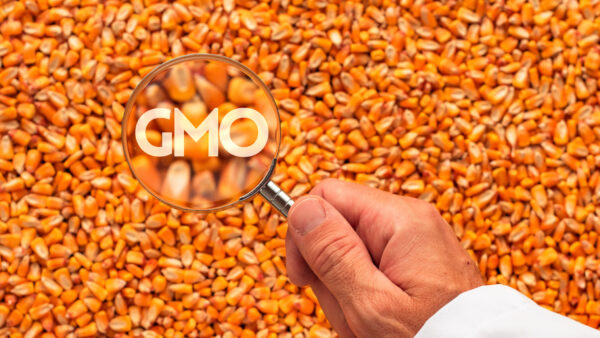Yesterday’s annual meeting could have been the Canadian Seed Trade Association’s last.
The Canadian Seed Trade Association did not hold an election of new directors at its virtual annual meeting yesterday. As the organization’s members begin voting on whether to amalgamate with the seed industry’s five other associations to form a single national seed organization called Seeds Canada, it was the first of several acknowledgments during the meeting that this could likely be the CSTA’s final annual gathering.
Outgoing president Georges Chaussé passed the gavel to Ellen Sparry, who serves as general manager of C&M Seeds.
“If members approve the merger, I will be the last president of the CSTA,” Sparry said, noting that if Seeds Canada is formed, she will be a member of the 15-member inaugural board of directors.
“By strengthening our industry’s competitiveness through access to new and more innovative varieties and technologies and using its greater capacity to shape and implement a revitalized and modernized national seed system, we can enhance Canada’s reputation as a global leader in safe and reliable food.”
The AGM came after numerous CSTA committee meetings held over the course of this month.
During the Seeds Canada discussion portion of the meeting, members discussed the new Seeds Canada committee structure and how it will ensure the important work of the seed trade gets done within a larger organization with more functions — specifically in regard to the CSTA’s International Committee, of which there is no equivalent committee currently built into the Seeds Canada board structure. Sparry said it will be crucial to have that discussion as Seeds Canada gets started for all the committees that currently are part of CSTA’s structure.
CSTA communications and member services manager Liz Lumsden notes that under the Seeds Canada policy/advisory committee there will be space for all committees to continue.
“We can’t lose sight of that, obviously. Everyone needs to be in the same room having the discussion on why that international work is important,” Sparry said. “The International Seed Federation is keen to continue their work with Canada at the table.”
Another concern to come up was the organizational model of Seeds Canada, which some members said takes the emphasis off the seed trade in favour of a more grower-focused regional model of representation.
Peter Entz, assistant vice-president of seed and traits for Richardson, said with more people at the table it will be imperative that Seeds Canada members involve themselves and ensure they bring their priorities forward — something that can only benefit the industry going forward.
“We all have a responsibility to become engaged and stay engaged with areas impotent to you and your organization. Engagement is key and understanding this is the starting point,” Entz said.
The merger vote — which for CSTA members extends until Aug. 20 — comes at a time when the CSTA is in flux. While it gained five new members over the past year, CSTA also had several members who chose not to renew their membership, interim executive director Tyler McCann said.
“Those that left the family did so for a variety of reasons, which have been reviewed by staff and the CSTA executive,” he said. “As a result, there was a decline in total membership numbers in 2020, down seven from 2019 to 123 members. This is in line with the average over CSTA’s recent history.”
He went on to note that under the Seeds Canada model (which recognizes both members and non-member clients, the latter of whom can access Seeds Canada services without being actual members), membership will be completely voluntary and will ensure stakeholders feel they are getting true value for their membership fees.
McCann came on as interim executive director earlier this year after the departure of Dave Carey. Coming into the position, McCann said his three main priorities were to “keep the lights on”, see the Seed Synergy process through to its conclusion, and help steer the CSTA through the COVID-19 pandemic, which hit North America soon after he assumed the executive director role.
“CSTA and its members are better off within Seeds Canada with its four other partners,” he went on to say. “Throughout the entire process of developing the amalgamation package, there has been a rock-solid commitment that the new organization would continue to deliver the services that the five amalgamating partners currently deliver. I firmly believe that Seeds Canada will be able to better leverage its resources and larger team to go further in delivering services more effectively to CSTA members.”
Progress Updates
In her progress update to members, Lauren Martin, government and industry relations manager for CSTA, talked about some examples of how CSTA has worked to reduce interprovincial trade barriers and make Canada a more attractive place for members to operate.
In Ontario, changes to pesticide management policies came into effect on April 9, she noted. “These changes, which created a simpler, more efficient process for the sale and use of pesticides in the province, were strongly advocated for by CSTA and value chain partners for multiple years. With coordinated effort, CSTA was able to ease a regulatory burden for members in Ontario.”
In Alberta, a change 15 years in the making came to fruition in 2020. In June, Alberta’s agriculture minister announced that fusarium would be removed from the Pest and Nuisance Control Regulation. There is no longer a prohibition on the movement of fusarium infected seed or plant matter within the province, and this makes way for industry-led management practices which are more effective means of pest control, she said.
CSTA was able to host its annual lobby day in February, prior to the pandemic. Scheduling conflicts kept the full roster of directors from attending but a number of successful meetings were had including, Martin noted, including meetings with Canadian Food Inspection Agency President Siddika Mithani, as well as a meeting with Neil Ellis, the new parliamentary secretary to the minister of agriculture. The February Lobby Day was CSTA’s first chance to get in front of the new Parliament post-election.
“Looking ahead, I am shifting, as you all are, to what government relations looks like in the new norm. In the early days of the pandemic, the team here conveyed several pressing concerns to [the federal government] and provincial counterparts which we continue to do where necessary,” Martin added. “Connecting virtually is now the status quo and my calendar will be dotted with a number of these such meetings as we progress on our priority files.”
Regulatory affairs and trade manager Claudio Feulner spoke about the importance of modernizing Canada’s approach to new gene editing technologies. The key is to update the country’s Plants with Novel Traits (PNT) legislation, he noted. In regard to GM, after 20-plus years of safety assessments, he called for a tiered approach that would assess new products based on whether or not a similar product has already been assessed and deemed safe.
Seed regulatory modernization, which he noted has been paused due to the pandemic, is still a top priority. He was hopeful the first official Seed Regulatory Modernization Working Group meetings would start as early as August.












